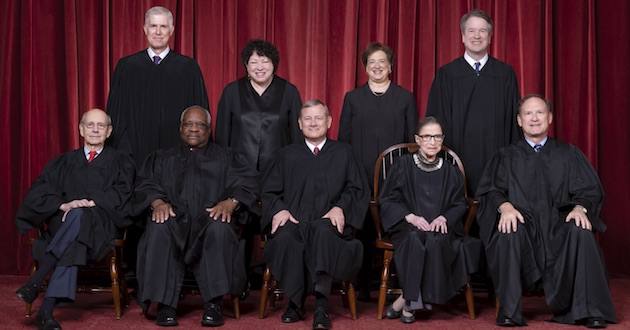National NewsNews
Several key religious cases are on Supreme Court docket

Although the president and Congress seem to dominate the news, in the background the U.S. Supreme Court is hearing several key cases this fall. The high court will reconvene October 7 with a full docket.
“This is shaping up to be an exciting term for religious liberty,” Mark Rienzi, president of the religious freedom organization Becket, told reporters on a conference call. “I think this term will see the court have some opportunities to tighten up and improve its doctrine and in the process, perhaps, stem the tide of religious liberty cases it’s been getting in recent years by giving some clear answers and some clear resolutions to some lingering controversies.”
Key cases before the court include:
- Harris Funeral Homes v. EEOC stems from a Christian funeral homeowner’s firing of a transgender employee who refused to wear clothing that corresponded with the employee’s birth sex. In this and companion cases, the court will examine whether the Title VII law banning discrimination on the basis of sex also protects on the basis of gender “identity” and sexual orientation.
- Espinosa v. Montana Department of Revenue deals with a state scholarship program that enables low-income families to send kids to private schools. Under the Montana program, residents can donate up to $150 per year to a state scholarship program for children to attend nonreligious and religious private schools and, in return, receive a dollar-for-dollar tax credit. A lawsuit was filed on behalf of several low-income single mothers who chose to send their children to private religious schools.
The court also will consider hearing these cases next spring:
- Fulton v. City of Philadelphia concern’s the city’s decision in 2018 to ban Catholic Social Services from being able to provide foster care services because the organization won’t place children with same-sex couples due to religious convictions.
- Arlene’s Flowers v. Washington and Arlene’s Flowers v. Ingersoll concern a Christian florist who was fined heavily by the state of Washington and sued after she refused to make floral arrangements for a same-sex wedding of one of her longtime customers.
- Little Sisters of the Poor is in follow-up to the Obama administration’s contraceptive mandate in the Affordable Care Act. The Little Sisters of the Poor are fighting against lawsuits states filed against the Trump administration’s religious conscience protections for faith-based organizations that have moral objections to providing contraception in health-care plans.
- Ricks v. State of Idaho Contractors Board delves into whether the board can deny a general contractor in Idaho the license he needs to work because he believes it would be a violation of his faith..
–Alan-Goforth | Metro Voice








